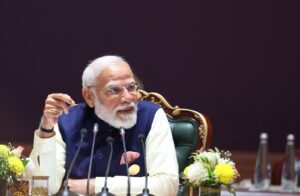
While violence between the traditional South Asian foes was intensifying since Wednesday (May 7) when India attacked nine terrorist sites in Pakistan, a full-scale conflict between India and Pakistan was avoided when they agreed to a truce mediated by the United States. India was retaliating for the terrorists’ April 22 murder of 26 people in Pahalgam, Jammu and Kashmir.
Across the border, the two sides were launching drone bombs at one another, killing civilians on both sides. India claimed that just the terrorist bases had been struck. In a covert backchannel exercise, Secretary of State Marc Rubio spoke with India’s External Affairs Minister Dr. S. Jaishanker and Pakistan’s Foreign Minister Ishaq Dar.
According to the Americans, the two parties themselves announced the ceasefire decision. “I am happy to announce that India and Pakistan have agreed to a FULL AND IMMEDIATE CEASEFIRE after a long night of talks mediated by the United States,” President Donald Trump said on his social media platform, Truth Social. Kudos to both nations for applying great intelligence and common sense.
However, there were explosions in Srinagar, the Indian capital of Jammu and Kashmir, as well as other locations along the border, which are regarded as a breach of the truce that Pakistan committed to. According to the Indian Minister of External Affairs, India has alternatives for dealing with terrorist strikes.
It may seem that the ceasefire mediated by the United States is brittle and is being violated from the minute India and Pakistan agreed to it. Interestingly, though, Pakistan requested the ceasefire just one day after the International Monetary Fund (IMF) announced a $1 billion economic rescue. India had abstained from voting and protested the assistance package.
Also Read:
Best Real Estate Investment Opportunities And Properties With Astrum Real Estate: Olga Dydyko
Exceptional Real Estate Offerings By Reportage Properties: Maria Lukic






